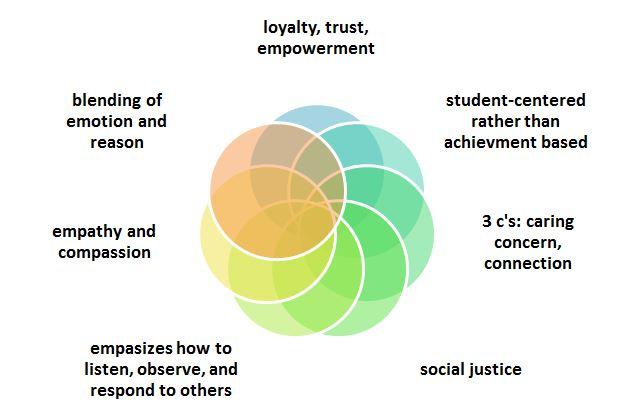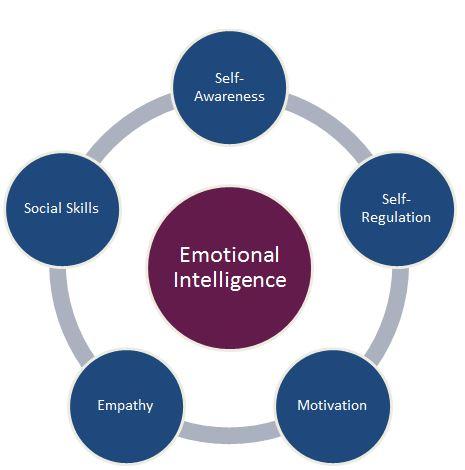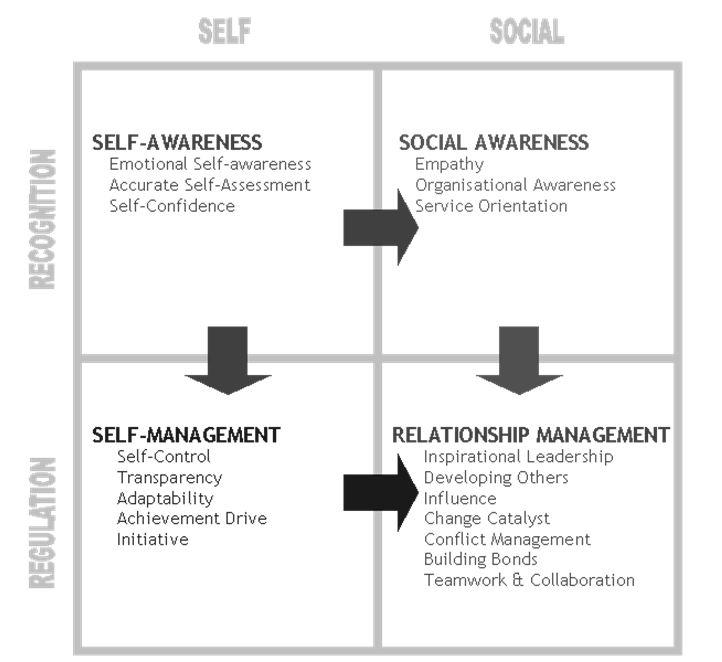Ethic of Care 2
IG - Intellectual Elaboration
A continued source of support for the course remains the textbook, Ethical Leadership and Decision Making in Education. Poliner Shapiro and Stefkovich (2011) provide four different lenses from which to view, think about, and resolve moral dilemmas: the ethic of justice, critique, care, and profession. Week Three builds upon the ethics of justice and critique as well as introduces the ethic of care. Figure 1, below, portrays the theoretical perspectives that are often considered with regard to the ethic of care:

Figure 1. Theoretical Perspectives and Ethic of Care
(Adapted from Poliner Shapiro, & Stefkovich, 2011).
According to Poliner Shapiro & Stefkovich (2011, p. 18-19), the ethic of care with regard to education can often cover questions such as: Who will benefit from what I decide? Who will be hurt by my decisions? What are the long-term effects of a decision I make today? If I am helped by someone now, what should I do in the future about giving back to this individual or to society in general?
This week, the concept of Emotional Intelligence (EI), also referred to Emotional Quotient (EQ), will be introduced. As educators, the term EQ might have brought up a strong connection to Intelligence Quotient (IQ). IQ tests became very popular during World War I and served as an evaluation tool for military recruits. The following is a link to the Stanford-Binet IQ test (Links to an external site.)Links to an external site. is frequently used today. IQ tests have been and remain commonly taken as children and adults as they have been linked to school achievement, job performance, and income. However, ethical educational leaders may find that EQ/EI is a more relevant indicator for performance as it can be related to how they understand, empathize, and negotiate with other people (Akers & Porter, 2007). As depicted in Figure 2, below, there are five common categories of emotional intelligence (EI).

Figure 2. Five Common Categories of EI
(Adapted from Akers & Porter, 2007)
Here is another quick EI tool that is informative for an ethical leader dealing with various stakeholder groups: Test your emotional intelligence! (Links to an external site.)Links to an external site. This quiz is based on your ability to read and understand body language and facial cues.
Week Three Assessment Guidance
Within Week Three, different dilemmas pertaining to the field of education will be considered through the lens of the ethic of caring and Emotional Intelligence. The following guidance provides detailed support as you participate in discussions and complete the assignment. Be sure to read through this guidance as well as review the individual links for each assignment and their corresponding rubrics.
Discussion 1: Emotional Intelligence Quiz
To complete this discussion post, you will first need to take the Emotional Intelligence quiz (Links to an external site.)Links to an external site. located at the maetrix website. There are numerous similar tests available online or through paid programs, but this one was chosen because it is free, won’t take too long complete (40 questions), and bases responses upon four main categories of Emotional Intelligence. However, one issue with this quiz is that it presents questions in an absolute manner (i.e. I always). This may not be the most appropriate format as decision making can change based on the situation. It is suggested that you answer the questions based on the ways that you are most likely to respond or act. After taking the quiz, you will be provided a score for four categories of Emotional Intelligence. Figure 3 outlines these four categories and their relationships to one another along the various domains of awareness as defined in Goleman’s (1995) model of EI.

Figure 3. Goleman’s Emotional Intelligence Model (1995)
Based on your results, the original discussion post will:
State scores from the quiz
Examine results based on the descriptions of four different categories of EI
Examine surprises encountered from results
Examine strategies that can be used to incorporate strengths into leadership abilities
Examines strategies that can be used to strengthen area(s) of weaknesses.
***Be aware that once you navigate away from the page, you will not be able to access your answers without retaking the quiz. You might want to copy and paste your results from the quiz into a word document that you can save and use in the future.***
Discussion 2: Case Study Analysis- Ethic of Care
For the first three weeks of the course, various real-life moral dilemmas are considered while assuming the role of a participant within the actual dilemma. You will be assigned a role, based on the first letter of your last name, and will post your initial response and all replies from the point of view of that assigned role. Each week, the roles rotate, ensuring that each group has the opportunity to assume the role of the educational leader. It is important to stick to your assigned role so that you can think about the situations from the viewpoint of other stakeholders and therefore analyze issues in ways that you may not have considered in the past. It is also very important that you respond back to any peers who have commented on your original post or to your instructor in order to ensure that true dialogue takes place.
For Week Three, the chosen case study is Case Study 9.2: Whose Best Interest? (Poliner Shapiro & Stefkovich, 2011, p. 143-146). As discussed in this week’s Intellectual Elaboration, one of the key factors of the ethic of care is the blending of emotion and reason. As you review the case study, consider emotion and reason while also taking note of the ways in which the ethics of justice, ethic of critique, and/or emotional intelligence factor into the case study.
Assignment: Ethic of Care Conversation
This week’s assignment is a fantastic opportunity to network with other leaders within in the field of education in order to gain a better understanding of how Emotional Intelligence (EI) and the ethic of care impact practice. Research shows that leaders who make use of emotional information and use their feelings constructively have an advantage over those who cannot (Mayer & Caruso, 2002). However, it is evident that there is a wide spectrum in regards to EI; from those who consider emotional intelligence as a key component of their leadership traits to those that see it as supplementary. For this assignment, choose any two leaders who are either associated with a school or an educational organization. The specific instructions in the Week Three Assignment overview provide details regarding the selection process. You may choose people from anywhere on EI spectrum. Choosing someone who appears to have really strong EI and someone who may not consider this an important factor may lead to a more interesting, comparative analysis.
Looking Ahead in EDU689!
In Week Five, you will create a plan of action for a personal case study. Keep in mind that the more you actively participate in the discussion posts “practice” case studies, the easier it will be to conduct one on your own.
References
Akers, M. & Porter, G. (2007). What is Emotional Intelligence (EQ)? Retrieved from http://psychcentral.com/lib/what-is-emotional-intelligence-eq/0001037.
Goleman, D., (1995) Emotional Intelligence. New York, NY: Bantam Books, Inc.
Mayer, J. D., & Caruso, D. (2002). The effective leaders: Understanding and applying emotional intelligence. Ivey Business Journal, 67(2), 1-5.
Poliner Shapiro, J., & Stefkovich, J. A. (2011). Ethical Leadership and decision making in education: Applying theoretical perspectives to complex dilemmas (3rd ed.). New York, NY: Routledge.



